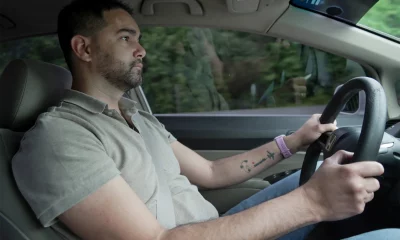a&e features
New co-pastors settle into life at Calvary Baptist
Former S.C. residents are partners in life and ministry
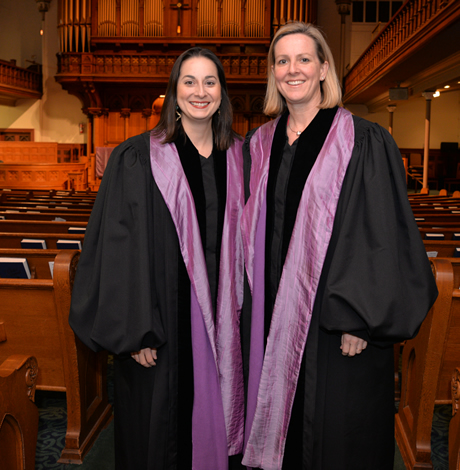
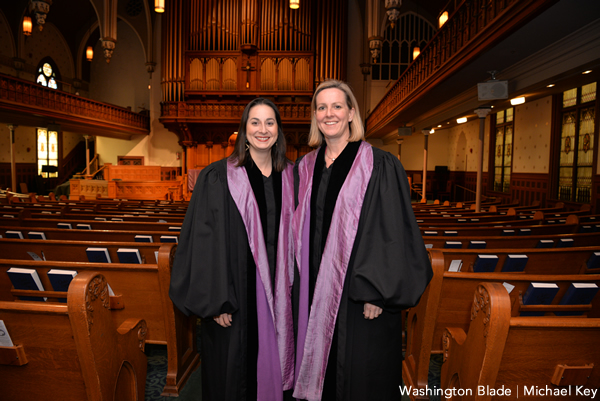
Revs. Sally Sarratt and Maria Swearingen say their pastoral strengths complement each other nicely. (Washington Blade photo by Michael Key)
As a child, Rev. Maria Swearingen felt a connection to the sacraments of the church in a way that was, looking back, perhaps unusual.
Helping her grandfather fill communion trays with crackers and grape juice on Saturday afternoons and seeing the table set on Sunday mornings knowing she’d had a hand in it, made her feel “overcome with just this profound sense of joy, that I participated in the setting of the table,” she says.
Those are skills she and her wife, Rev. Sally Sarratt will put to good use as co-senior pastors of Calvary Baptist Church in Chinatown. Their first Sunday was Feb. 26, so they’re still getting used to their new roles, their first joint pastorate.
Sarratt was previously a hospital chaplain and was filling in for a minister on sabbatical at Greenville Unitarian Universalist Fellowship in Greenville, S.C. Swearingen was associate university chaplain at Furman University and spent the last year working with a cohort of clergy to develop a year-long training program for religious leaders focused on dismantling white supremacy and racism.
The couple, together since late 2009 (they’d met the previous year at church), weren’t necessarily looking for a co-pastorate but it was something they’d dreamed and talked about. Calvary’s last pastor, Rev. Amy Butler, left in 2014 to become senior pastor at New York’s famed Riverside Church, one of the few progressive non-denominational churches in the country. Rev. Allyson Robinson, who’s transgender, was interim minister. Sarratt and Swearingen say their sexual orientation (they both identify as lesbians) was a non-issue.
“The fact that we happened to be a same-sex couple wasn’t even part of their conversation,” Sarratt says. “Calvary had already kind of done the work to say, ‘Look, we’re welcoming and affirming,’ … so it really wasn’t an issue for the (search) committee.”
The job ad said the church was open to considering a co-pastorate. They both work at the church full time and say their gifts and strengths are different enough as to be complementary, although they share preaching duties. Mostly either one or the other will deliver the sermon, but they are experimenting with co-sermonizing, an idea they’re toying with for Easter Sunday.
“As we met and talked with Sally and Maria about their vision for pastoral leadership … we were struck by their deep faith and commitment to being part of a gospel community,” says Carol Blythe, chair of the search committee. “We were impressed by how their gifts, talents and experience matched our ministry priorities and we’re thrilled about their upcoming pastorate and the versatility the co-pastor model will provide our congregation.”
Sarratt says the compensation package the church offered them “is very fair.”
So is it unusual for a Baptist church to be so open-minded? Not really. Calvary is part of the American Baptist Churches USA movement, which has about 1.3 million members in about 5,000 congregations. There are 42 million Baptists around the world that trace their tradition to the early 17th century. Calvary has no ties to the Southern Baptist Convention, the largest Protestant group in the United States with about 15 million members and a much more conservative, anti-gay agency.
Sarratt and Swearingen grew up in more conservative strains of the denomination and though they each attended Methodist seminaries, they have strong Baptist roots. Swearingen remembers some “fire and brimstone” preaching in her youth but says her theology has evolved.
Swearingen says to her, being Baptist means valuing separation of church and state, religious liberty and belief in the priesthood of all believers.
“That’s kind of the gift of what Baptist life can be, that’s what the word can hold,” she says. “For quite some time, it hasn’t looked that way in lots of spaces that call themselves Baptist, but I’m all about being invested in reclaiming that word.”
Looking back, though, she says she’s amazed that even in the theology of her youth, progressive beliefs managed to seep in.
“What I think is so uncanny and persnickety about the way the gospel can work is … the overturning and upturning of unjust, un-mutual systems of power, these things would still find their way into the cracks and crevices,” she says. “The goodness of faith life and practices was findings its way to me even amidst really problematic and damaging theology and it’s really what we, ministry wise, are invested in as much as anything. How do we unearth and let go of and heal from all kinds of theological language that really has just been a perpetuation of oppression and really find freedom and release from that so we can use and live inside language that actually invites wholeness?”
It’s a recurring theme in her ministerial philosophies and similar strains pop up when asked about the future of the mainline church, trends in church attendance among Millennials and even what lessons the Easter message has for today.
Sarratt says for her, getting to that place has been a process. She speaks of “digging and deconstructing and reconstructing” various theology over time.
“One of the things I worry about and feel sad about is the fact that in many ways, queer people still think, ‘I either choose my faith or I choose who I am,’” Sarratt says. “The integration and wedding of the two and either one being able to bless the fullness of who you are is still kind of a rare thing.”
Neither Sarratt nor Swearingen were out when they met in the summer of 2008. Both planning to pursue full-time ministry and didn’t see any way to be out, especially in the Bible Belt, while being pastors.
“Mariah was headed back to school in Durham and it was one of those things like, ‘Well, that was great, but I’m feeling called to ministry so this can’t happen, it can’t be,’” Sarratt says.
But their connection — Swearingen says, “You know, love — yada, yada” — was persistent.
“By the fall of 2009 we were kind of like, ‘Yeah, this is so real and profound, how do we choose both of these paths?’ We didn’t know but we started saying, maybe it’s time to start walking in that direction … of trying to do ministry and family and life together,” Sarratt says.
Coming out, she says, was a “long, slow, cautious, careful process.”
Swearingen says it came down to the decision all out LGBT people eventually make. “Am I choosing to live embodied in my real self or in some constructed reality of me,” she says. “Freedom always comes when we keep pressing more into our authentic selves. … and it’s deep, difficult work of … really claiming and choosing one’s self.”
Sarratt calls it “being able to see one’s self as a beloved child of God.”
Eventually there were three marriages of sorts. They privately shared vows in 2011, had a commitment ceremony with family and friends in 2014 and made it legal as soon as they could the Tuesday before Thanksgiving in 2014 at a Greenville courthouse.
They say early signs at Calvary are positive. They’re spending the first several months meeting individually with staff, board members and parishioners. About a hundred worshippers attend on an average Sunday. Several other congregations and outside groups use the massive downtown facility throughout the week. The couple guesses about 20 percent of the congregation are LGBT.
Sarratt says her strengths are in business, systems thinking and spiritual formation. She says Swearingen, who’s bilingual, is much better at creative worship planning.
“Even if I invested all my time and energy into being a creative worship planner, I’d still only have maybe as much as she has in her pinky,” Sarratt says. “It’s just one of those things where you get to use your gifts without having to shore up those parts of the job you’re not as good at naturally.”
They say they’re mindful of falling into potential trouble areas — not making time for a life outside of church together or the possibility of getting swept up in church politics. Or even, perhaps more innocuously, finding some factions of the congregation favoring one over the other.
So what will success look like? And with society slowly shifting toward progress on LGBT and all kinds of issues, why are the big, downtown, progressive churches often struggling while the anti-gay evangelical churches continue to thrive?
“It’s hard to kind of treat the litmus test if you will as large swaths of people who can afford big buildings,” Swearingen says. “But if you’re imagining the work of justice building and peace building, those are movements that don’t always create a success that can be pointed to, which, quite simply, wouldn’t be what I’d call a goal I’d get excited about. It’s the work itself, the outcomes and the goals are different.”
She says looking at the work through that alternate lens creates a much different perspective on effective ministry.
“For me, the questions would be are the people who have understood themselves to be marginalized, dispossessed and oppressed, finding space to be whole? If the answer to that is yes, then we’re being the church, but if the answer is, ‘I’m not so sure, but look at this really cool building we just built,’ I struggle to call those outcomes fruitful church work.”
New Calvary pastors share favorites
Favorite hymn?
SWEARINGEN: “Great is Thy Faithfulness,” but especially Yvette Flunder’s version when she says, “Oh God my father and mother.” I love that.
SARRATT: Since we’re in Lent, I’m thinking more in those terms right now so I like some of the more reflecting ones like “Abide With Me” or “O Sacred Head Now Wounded.”
Favorite scripture?
SWEARINGEN: “Do not grow weary in doing good for at the proper time, you will reap a harvest if you do not give up.” (Galatians 6:9)
SARRATT: The sermon on the mount, especially the Beatitudes.
Favorite biblical figure?
SWEARINGEN: Ruth and Naomi.
SARRATT: Job. We need to reclaim the fullness of emotion and lament and not just sanitize everything. The older I get, the more I’ve found a deep and profound honesty in those places.
a&e features
Visit Cambridge, a ‘beautiful secret’ on Maryland’s Eastern Shore
New organization promotes town’s welcoming vibe, LGBTQ inclusion

CAMBRIDGE, Md. — Driving through this scenic, historic town on Maryland’s Eastern Shore, you’ll be charmed by streets lined with unique shops, restaurants, and beautifully restored Victorian homes. You’ll also be struck by the number of LGBTQ Pride flags flying throughout the town.
The flags are a reassuring signal that everyone is welcome here, despite the town’s location in ruby red Dorchester County, which voted for Donald Trump over Kamala Harris by a lopsided margin. But don’t let that deter you from visiting. A new organization, Proudly Cambridge, is holding its debut Pride event this weekend, touting the town’s welcoming, inclusive culture.
“We stumbled on a beautiful secret and we wanted to help get the word out,” said James Lumalcuri of the effort to create Proudly Cambridge.
The organization celebrates diversity, enhances public spaces, and seeks to uplift all that Cambridge has to share, according to its mission statement, under the tagline “You Belong Here.”
The group has so far held informal movie nights and a picnic and garden party; the launch party is June 28 at the Cambridge Yacht Club, which will feature a Pride celebration and tea dance. The event’s 75 tickets sold out quickly and proceeds benefit DoCo Pride.
“Tickets went faster than we imagined and we’re bummed we can’t welcome everyone who wanted to come,” Lumalcuri said, adding that organizers plan to make “Cheers on the Choptank” an annual event with added capacity next year.
One of the group’s first projects was to distribute free Pride flags to anyone who requested one and the result is a visually striking display of a large number of flags flying all over town. Up next: Proudly Cambridge plans to roll out a program offering affirming businesses rainbow crab stickers to show their inclusiveness and LGBTQ support. The group also wants to engage with potential visitors and homebuyers.
“We want to spread the word outside of Cambridge — in D.C. and Baltimore — who don’t know about Cambridge,” Lumalcuri said. “We want them to come and know we are a safe haven. You can exist here and feel comfortable and supported by neighbors in a way that we didn’t anticipate when we moved here.”

Lumalcuri, 53, a federal government employee, and his husband, Lou Cardenas, 62, a Realtor, purchased a Victorian house in Cambridge in 2021 and embarked on an extensive renovation. The couple also owns a home in Adams Morgan in D.C.
“We saw the opportunity here and wanted to share it with others,” Cardenas said. “There’s lots of housing inventory in the $300-400,000 range … we’re not here to gentrify people out of town because a lot of these homes are just empty and need to be fixed up and we’re happy to be a part of that.”
Lumalcuri was talking with friends one Sunday last year at the gazebo (affectionately known as the “gayzebo” by locals) at the Yacht Club and the idea for Proudly Cambridge was born. The founding board members are Lumalcuri, Corey van Vlymen, Brian Orjuela, Lauren Mross, and Caleb Holland. The group is currently working toward forming a 501(c)3.
“We need visibility and support for those who need it,” Mross said. “We started making lists of what we wanted to do and the five of us ran with it. We started meeting weekly and solidified what we wanted to do.”
Mross, 50, a brand strategist and web designer, moved to Cambridge from Atlanta with her wife three years ago. They knew they wanted to be near the water and farther north and began researching their options when they discovered Cambridge.
“I had not heard of Cambridge but the location seemed perfect,” she said. “I pointed on a map and said this is where we’re going to move.”
The couple packed up, bought a camper trailer and parked it in different campsites but kept coming back to Cambridge.
“I didn’t know how right it was until we moved here,” she said. “It’s the most welcoming place … there’s an energy vortex here – how did so many cool, progressive people end up in one place?”
Corey van Vlymen and his husband live in D.C. and were looking for a second home. They considered Lost River, W.Va., but decided they preferred to be on the water.
“We looked at a map on both sides of the bay and came to Cambridge on a Saturday and bought a house that day,” said van Vlymen, 39, a senior scientist at Booz Allen Hamilton. They’ve owned in Cambridge for two years.
They were drawn to Cambridge due to its location on the water, the affordable housing inventory, and its proximity to D.C.; it’s about an hour and 20 minutes away.
Now, through the work of Proudly Cambridge, they hope to highlight the town’s many attributes to residents and visitors alike.
“Something we all agree on is there’s a perception problem for Cambridge and a lack of awareness,” van Vlymen said. “If you tell someone you’re going to Cambridge, chances are they think, ‘England or Massachusetts?’”
He cited the affordability and the opportunity to save older, historic homes as a big draw for buyers.
“It’s all about celebrating all the things that make Cambridge great,” Mross added. “Our monthly social events are joyful and celebratory.” A recent game night drew about 70 people.
She noted that the goal is not to gentrify the town and push longtime residents out, but to uplift all the people who are already there while welcoming new visitors and future residents.
They also noted that Proudly Cambridge does not seek to supplant existing Pride-focused organizations. Dorchester County Pride organizes countywide Pride events and Delmarva Pride was held in nearby Easton two weeks ago.
“We celebrate all diversity but are gay powered and gay led,” Mross noted.
To learn more about Proudly Cambridge, visit the group on Facebook and Instagram.
What to see and do
Cambridge, located 13 miles up the Choptank River from the Chesapeake Bay, has a population of roughly 15,000. It was settled in 1684 and named for the English university town in 1686. It is home to the Harriet Tubman Museum, mural, and monument. Its proximity to the Blackwater National Wildlife Refuge makes it a popular stop for birders, drawn to more than 27,000 acres of marshland dubbed “the Everglades of the north.”
The refuge is walkable, bikeable, and driveable, making it an accessible attraction for all. There are kayaking and biking tours through Blackwater Adventures (blackwateradventuresmd.com).
Back in town, take a stroll along the water and through historic downtown and admire the architecture. Take in the striking Harriet Tubman mural (424 Race St.). Shop in the many local boutiques, and don’t miss the gay-owned Shorelife Home and Gifts (421 Race St.), filled with stylish coastal décor items.
Stop for breakfast or lunch at Black Water Bakery (429 Race St.), which offers a full compliment of coffee drinks along with a build-your-own mimosa bar and a full menu of creative cocktails.
The Cambridge Yacht Club (1 Mill St.) is always bustling but you need to be a member to get in. Snapper’s on the water is temporarily closed for renovations. RaR Brewing (rarbrewing.com) is popular for craft beers served in an 80-year-old former pool hall and bowling alley. The menu offers burgers, wings, and other bar fare.
For dinner or wine, don’t miss the fantastic Vintage 414 (414 Race St.), which offers lunch, dinner, wine tasting events, specialty foods, and a large selection of wines. The homemade cheddar crackers, inventive flatbreads, and creative desserts (citrus olive oil cake, carrot cake trifle) were a hit on a recent visit.
Also nearby is Ava’s (305 High St.), a regional chain offering outstanding Italian dishes, pizzas, and more.
For something off the beaten path, visit Emily’s Produce (22143 Church Creek Rd.) for its nursery, produce, and prepared meals.
“Ten minutes into the sticks there’s a place called Emily’s Produce, where you can pay $5 and walk through a field and pick sunflowers, blueberries, you can feed the goats … and they have great food,” van Vlymen said.
As for accommodations, there’s the Hyatt Regency Chesapeake Bay (100 Heron Blvd. at Route 50), a resort complex with golf course, spa, and marina. Otherwise, check out Airbnb and VRBO for short-term rentals closer to downtown.
Its proximity to D.C. and Baltimore makes Cambridge an ideal weekend getaway. The large LGBTQ population is welcoming and they are happy to talk up their town and show you around.
“There’s a closeness among the neighbors that I wasn’t feeling in D.C.,” Lumalcuri said. “We look after each other.”
a&e features
James Baldwin bio shows how much of his life is revealed in his work
‘A Love Story’ is first major book on acclaimed author’s life in 30 years

‘Baldwin: A Love Story’
By Nicholas Boggs
c.2025, FSG
$35/704 pages
“Baldwin: A Love Story” is a sympathetic biography, the first major one in 30 years, of acclaimed Black gay writer James Baldwin. Drawing on Baldwin’s fiction, essays, and letters, Nicolas Boggs, a white writer who rediscovered and co-edited a new edition of a long-lost Baldwin book, explores Baldwin’s life and work through focusing on his lovers, mentors, and inspirations.
The book begins with a quick look at Baldwin’s childhood in Harlem, and his difficult relationship with his religious, angry stepfather. Baldwin’s experience with Orilla Miller, a white teacher who encouraged the boy’s writing and took him to plays and movies, even against his father’s wishes, helped shape his life and tempered his feelings toward white people. When Baldwin later joined a church and became a child preacher, though, he felt conflicted between academic success and religious demands, even denouncing Miller at one point. In a fascinating late essay, Baldwin also described his teenage sexual relationship with a mobster, who showed him off in public.
Baldwin’s romantic life was complicated, as he preferred men who were not outwardly gay. Indeed, many would marry women and have children while also involved with Baldwin. Still, they would often remain friends and enabled Baldwin’s work. Lucien Happersberger, who met Baldwin while both were living in Paris, sent him to a Swiss village, where he wrote his first novel, “Go Tell It on the Mountain,” as well as an essay, “Stranger in the Village,” about the oddness of being the first Black person many villagers had ever seen. Baldwin met Turkish actor Engin Cezzar in New York at the Actors’ Studio; Baldwin later spent time in Istanbul with Cezzar and his wife, finishing “Another Country” and directing a controversial play about Turkish prisoners that depicted sexuality and gender.
Baldwin collaborated with French artist Yoran Cazac on a children’s book, which later vanished. Boggs writes of his excitement about coming across this book while a student at Yale and how he later interviewed Cazac and his wife while also republishing the book. Baldwin also had many tumultuous sexual relationships with young men whom he tried to mentor and shape, most of which led to drama and despair.
The book carefully examines Baldwin’s development as a writer. “Go Tell It on the Mountain” draws heavily on his early life, giving subtle signs of the main character John’s sexuality, while “Giovanni’s Room” bravely and openly shows a homosexual relationship, highly controversial at the time. “If Beale Street Could Talk” features a woman as its main character and narrator, the first time Baldwin wrote fully through a woman’s perspective. His essays feel deeply personal, even if they do not reveal everything; Lucian is the unnamed visiting friend in one who the police briefly detained along with Baldwin. He found New York too distracting to write, spending his time there with friends and family or on business. He was close friends with modernist painter Beauford Delaney, also gay, who helped Baldwin see that a Black man could thrive as an artist. Delaney would later move to France, staying near Baldwin’s home.
An epilogue has Boggs writing about encountering Baldwin’s work as one of the few white students in a majority-Black school. It helpfully reminds us that Baldwin connects to all who feel different, no matter their race, sexuality, gender, or class. A well-written, easy-flowing biography, with many excerpts from Baldwin’s writing, it shows how much of his life is revealed in his work. Let’s hope it encourages reading the work, either again or for the first time.
a&e features
Looking back at 50 years of Pride in D.C
Washington Blade’s unique archives chronicle highs, lows of our movement
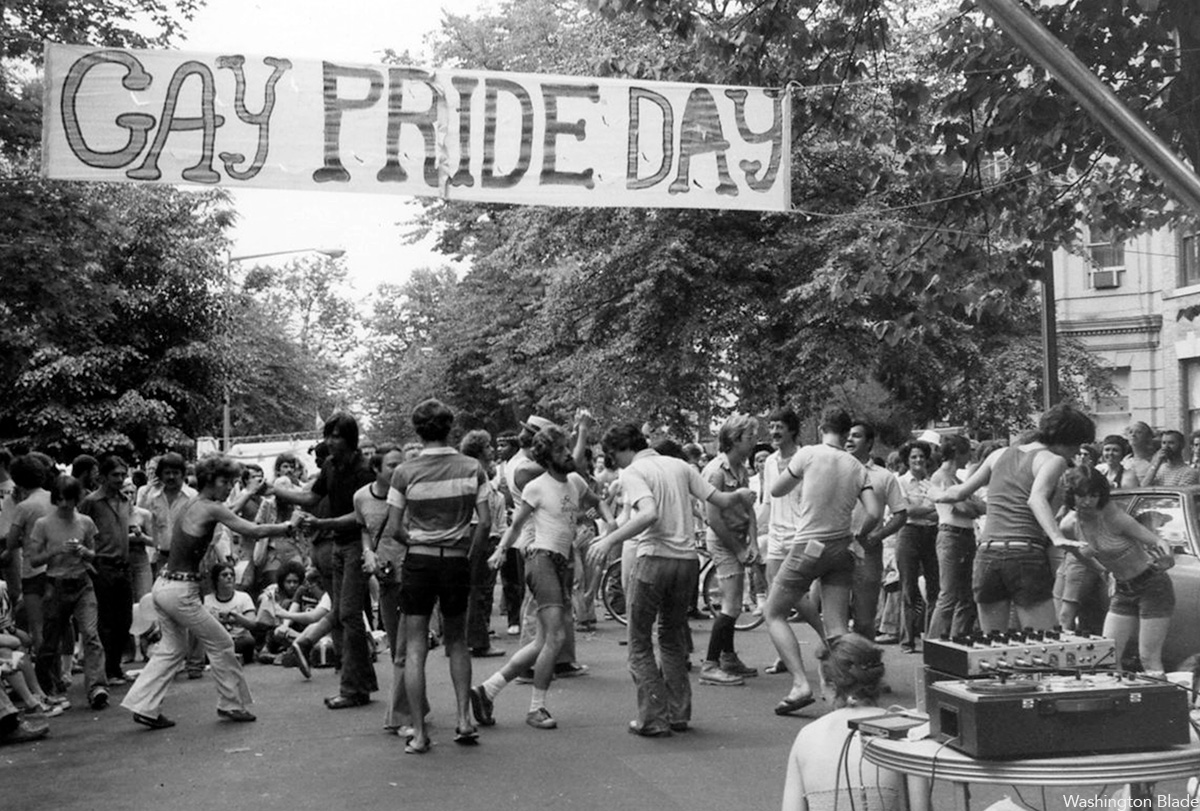
To celebrate the 50th anniversary of LGBTQ Pride in Washington, D.C., the Washington Blade team combed our archives and put together a glossy magazine showcasing five decades of celebrations in the city. Below is a sampling of images from the magazine but be sure to find a print copy starting this week.
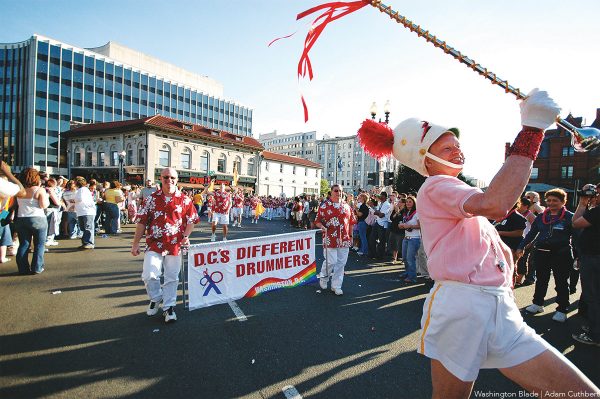
The magazine is being distributed now and is complimentary. You can find copies at LGBTQ bars and restaurants across the city. Or visit the Blade booth at the Pride festival on June 7 and 8 where we will distribute copies.
Thank you to our advertisers and sponsors, whose support has enabled us to distribute the magazine free of charge. And thanks to our dedicated team at the Blade, especially Photo Editor Michael Key, who spent many hours searching the archives for the best images, many of which are unique to the Blade and cannot be found elsewhere. And thanks to our dynamic production team of Meaghan Juba, who designed the magazine, and Phil Rockstroh who managed the process. Stephen Rutgers and Brian Pitts handled sales and marketing and staff writers Lou Chibbaro Jr., Christopher Kane, Michael K. Lavers, Joe Reberkenny along with freelancer and former Blade staffer Joey DiGuglielmo wrote the essays.

The magazine represents more than 50 years of hard work by countless reporters, editors, advertising sales reps, photographers, and other media professionals who have brought you the Washington Blade since 1969.
We hope you enjoy the magazine and keep it as a reminder of all the many ups and downs our local LGBTQ community has experienced over the past 50 years.
I hope you will consider supporting our vital mission by becoming a Blade member today. At a time when reliable, accurate LGBTQ news is more essential than ever, your contribution helps make it possible. With a monthly gift starting at just $7, you’ll ensure that the Blade remains a trusted, free resource for the community — now and for years to come. Click here to help fund LGBTQ journalism.
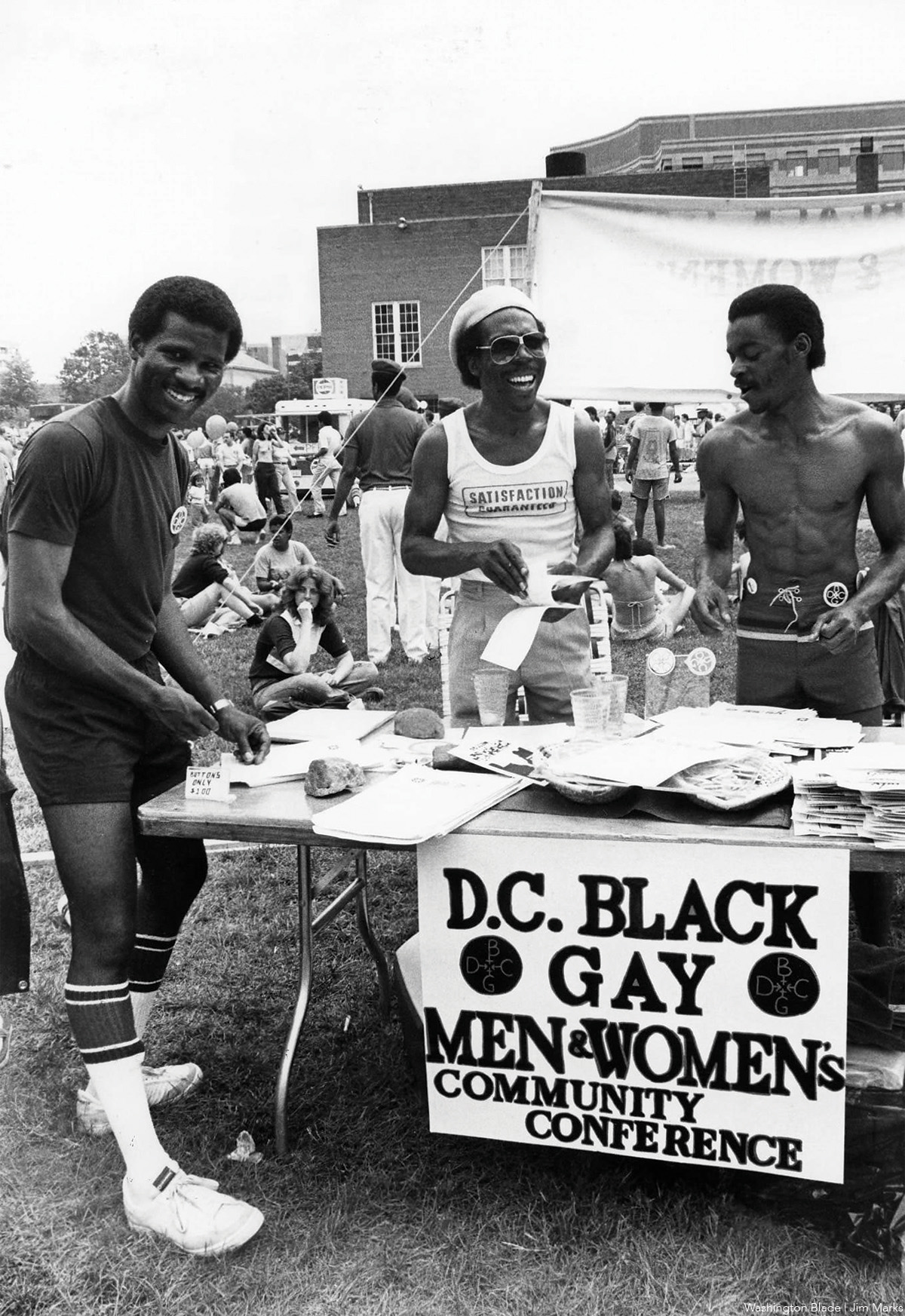
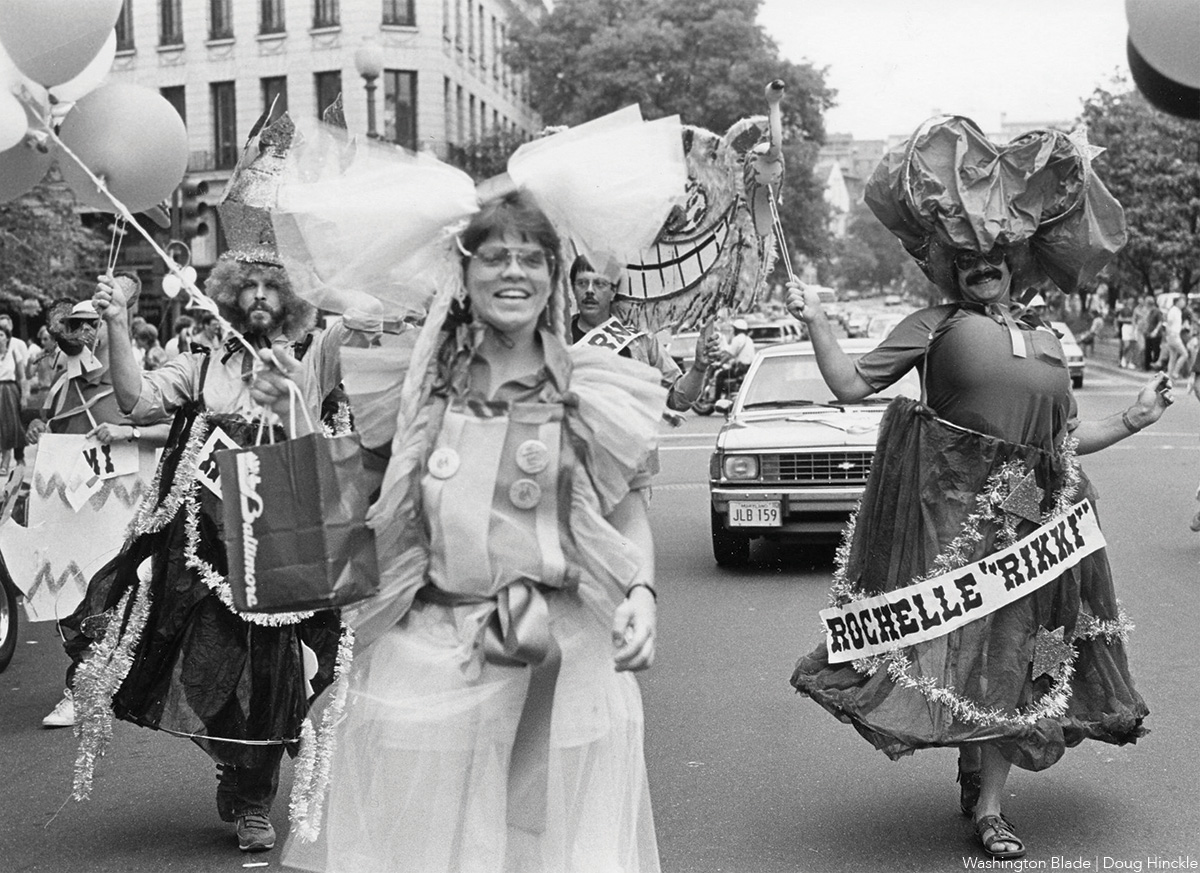
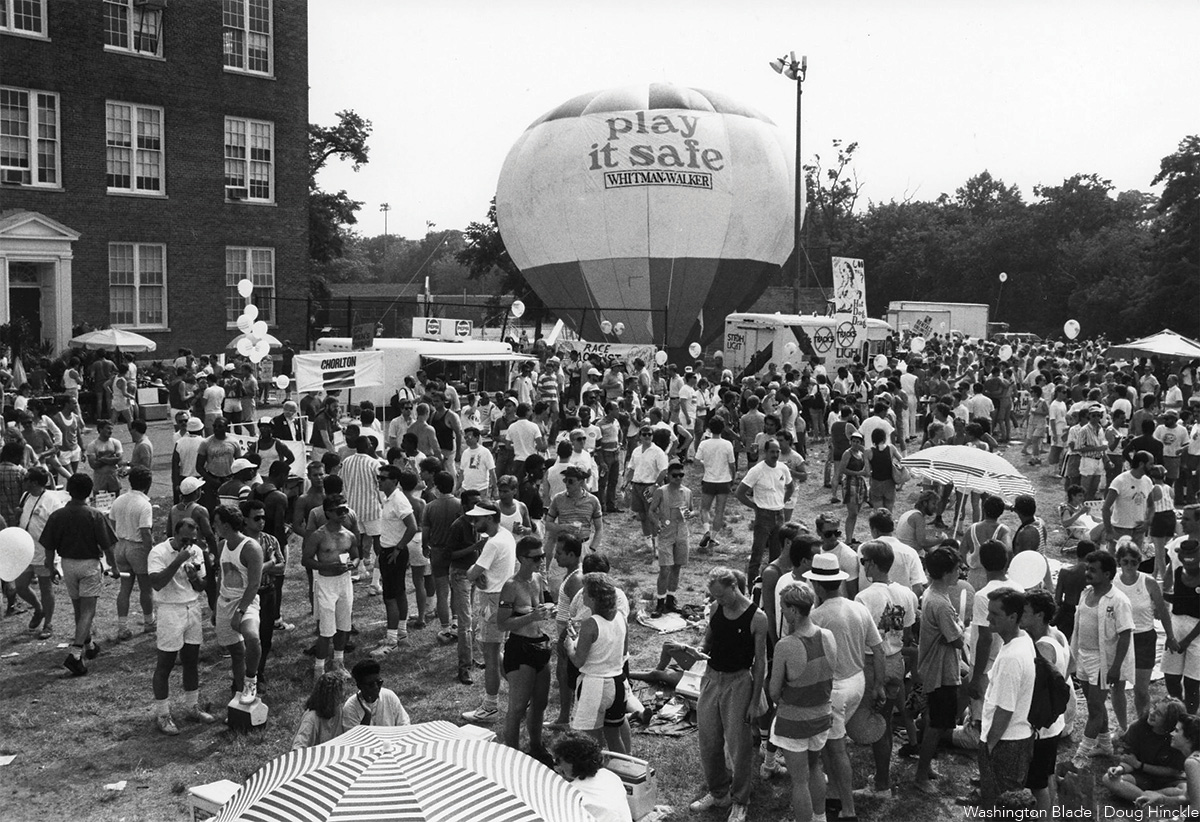
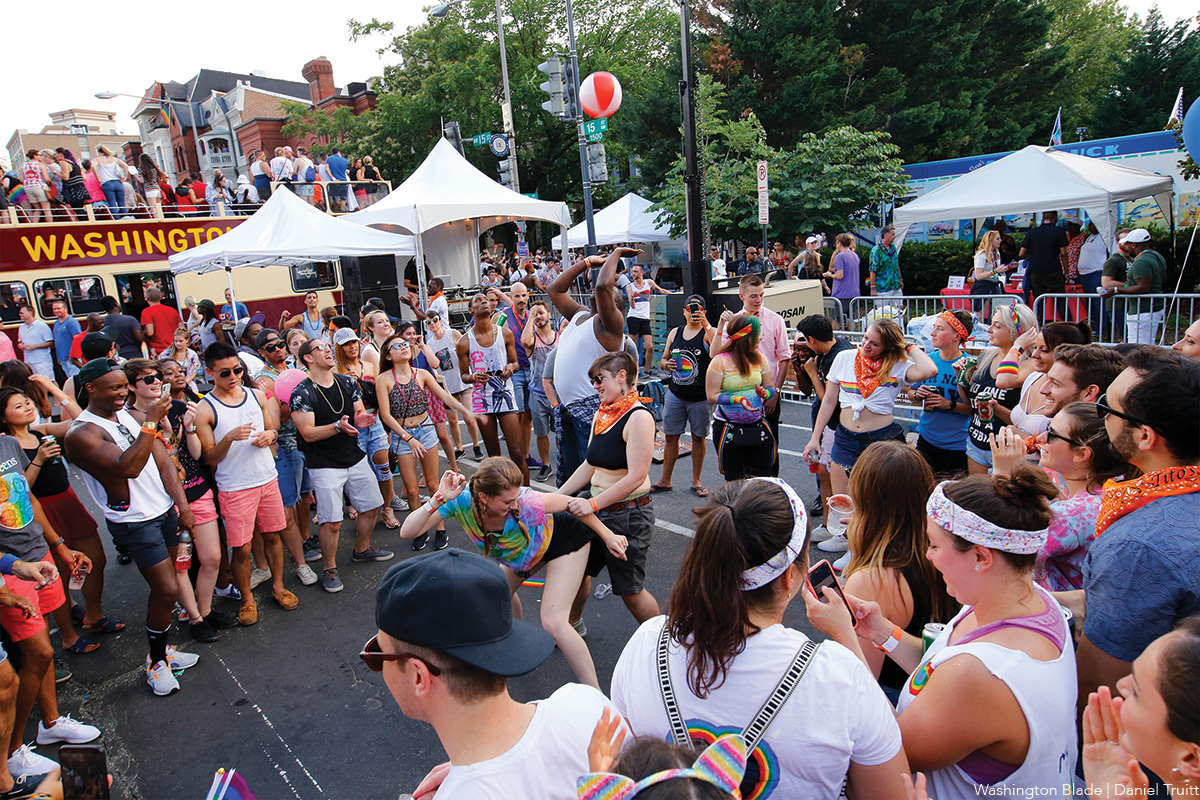
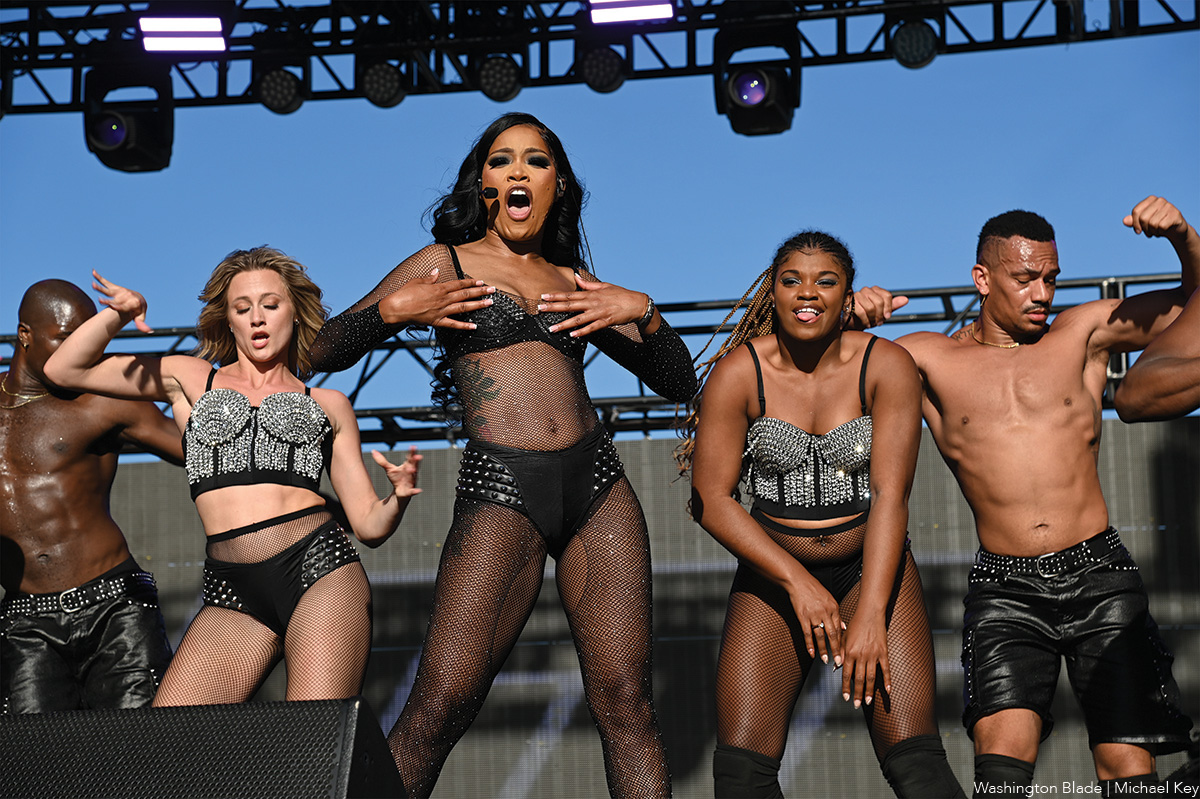
-

 U.S. Supreme Court5 days ago
U.S. Supreme Court5 days agoSupreme Court upholds ACA rule that makes PrEP, other preventative care free
-

 U.S. Supreme Court5 days ago
U.S. Supreme Court5 days agoSupreme Court rules parents must have option to opt children out of LGBTQ-specific lessons
-
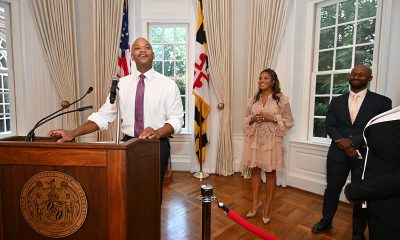
 Maryland5 days ago
Maryland5 days agoWes Moore hosts annual Pride reception
-

 District of Columbia5 days ago
District of Columbia5 days agoActivists protest outside Hungarian Embassy in DC





